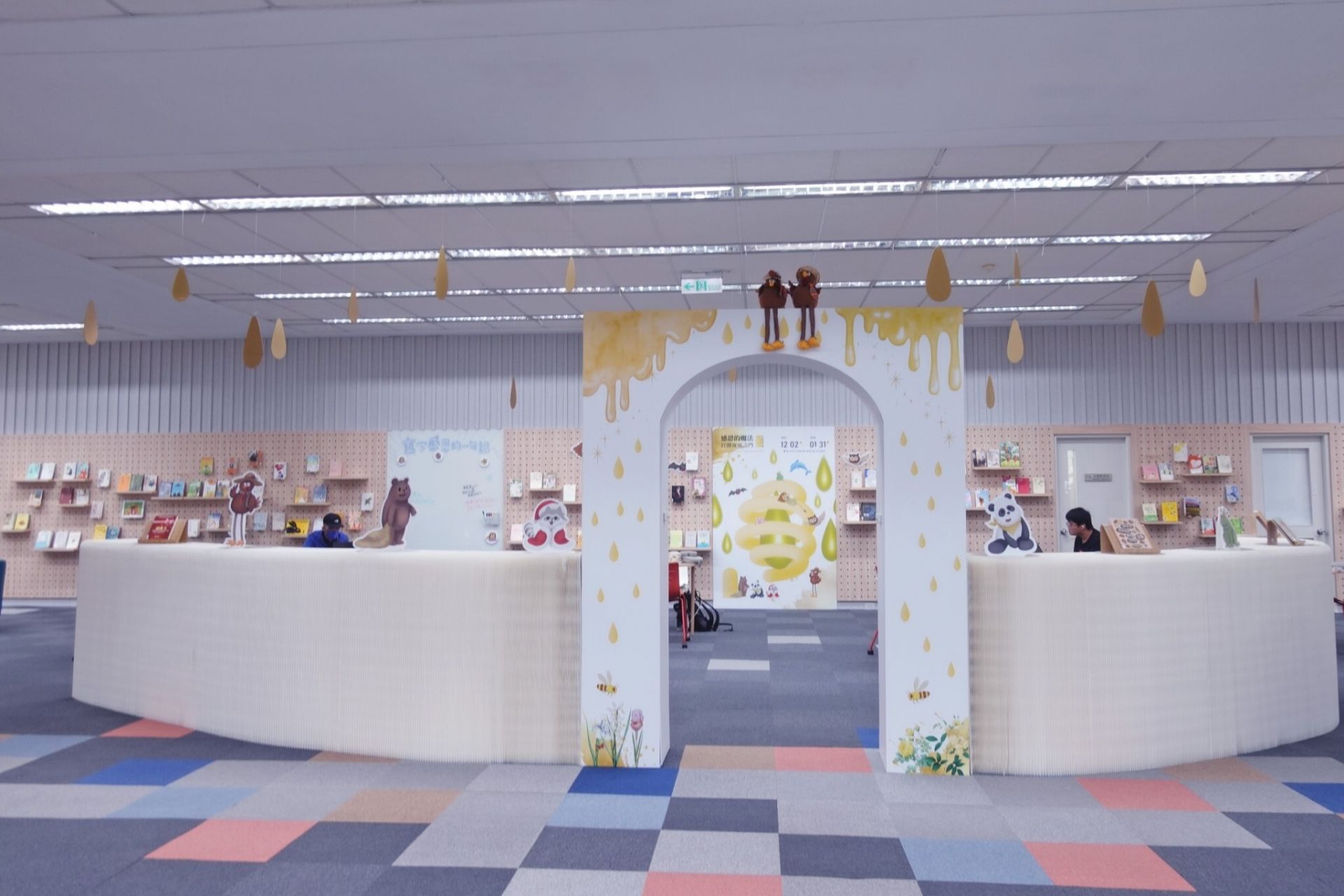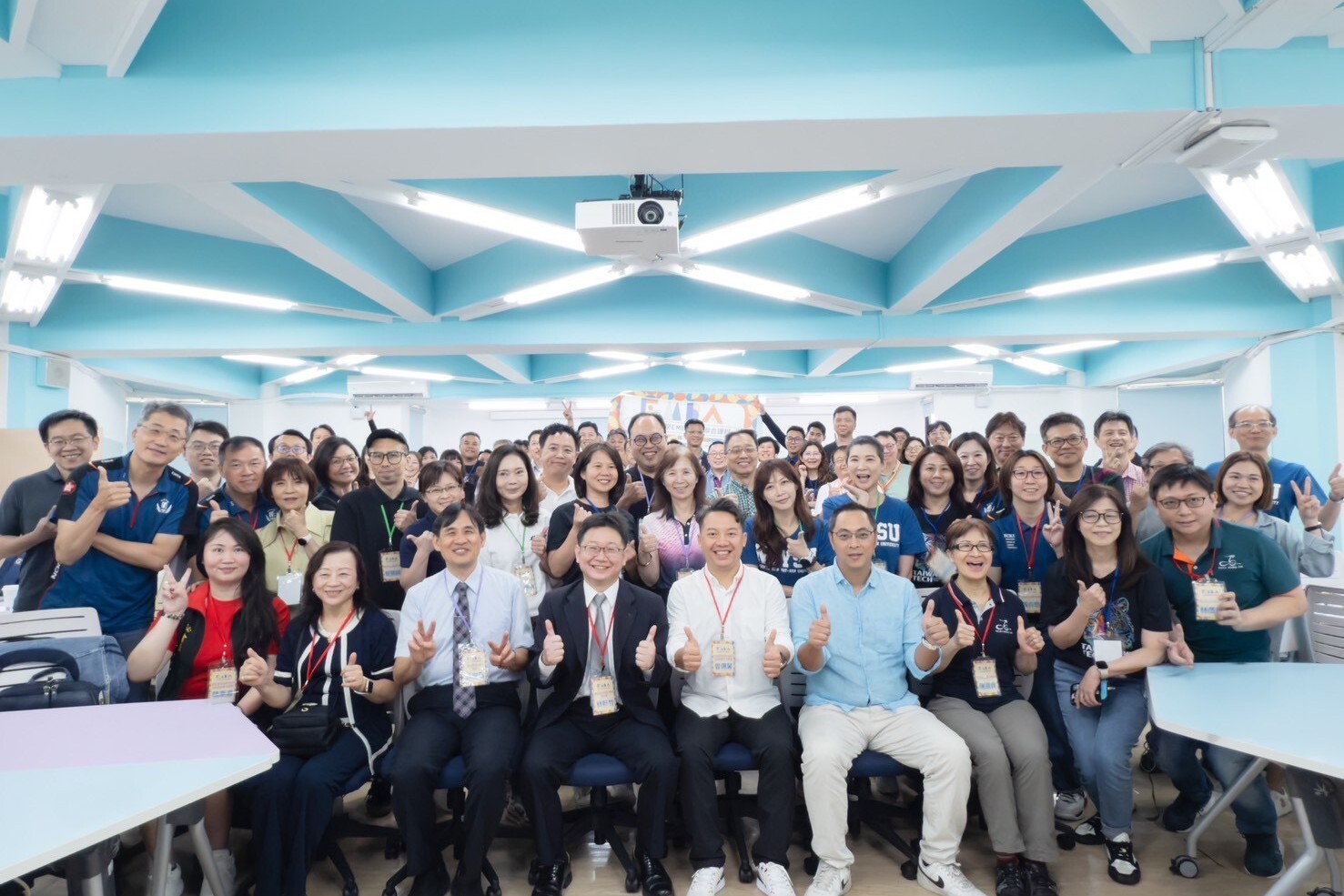SDG4
NCKU X National Chaochou Senior High School: Science Camp that Integrates Science Education and Aboriginal Cultural Knowledge
National Cheng Kung University and National Chaochou Senior High School collaborated to organize the 'Return to Indigenous' High School Science Camp on June 16th and 17th. During the camp, students had the opportunity to explore the laboratories of various departments and the Science Education Center of NCKU's College of Science. Moreover, they participated in significant local events, including the 'Maljeveq' (Ritual of Covenant between Man and Deity) and the 'Ball Stabbing Ceremony,' in the Wan Jia Tribe (Vungalid), Laiyi Township, Pingtung. The integration of science education and indigenous cultural knowledge sparked enthusiastic participation from students. Originally planned for 30 participants, the camp exceeded expectations, with 36 students enrolled, and interest still abounds.
On the second day, the students visited the Wan Jia Tribe to learn about the 'Maljeveq' ritual, a crucial event held once every five years by the Wan Jia Tribe of the Paiwan Tribe. Guided by local traditional leader (chief) Jun-jie Luo and elder Shi-ji Lin, the students gained insights into the execution and cultural significance of the ritual. Additionally, they participated in the traditional ball stabbing ceremony, using a long pole to throw a ball from a distance. These actions related to concepts in mathematics and scientific principles explained during the visit to the Science Education Center the previous day, including trigonometric functions, projectile motion, and Newton's laws of motion.
The science camp's opening ceremony took place at NCKU on the morning of June 16th, with Yi-Wen Lin, the Principal of National Chaochou Senior High School, in attendance. Ljegay Rupeljengan (Ting-Li Lin), Associate Professor of the Department of Earth Sciences at NCKU and a member of the Paiwan Tribe, delivered a keynote speech titled 'My Journey in Science.' He shared his personal experiences and insights into scientific research, encouraging the high school students to courageously transcend the boundaries of their learning frameworks. Later, students engaged in hands-on activities at the Science Education Center, exploring 'Electronic Building Blocks - Electronic Sound and Light Circuit Experiment' and completing learning sheets.
In the afternoon, students were divided into three groups and rotated through visits to the laboratories of the College of Bioscience and Biotechnology, the Department of Earth Sciences, and the Institute of Archaeology. They received introductions to the college, observed shell specimens, and visited laboratories related to plant research in the College of Bioscience and Biotechnology's Hooke Creative Classroom. In the Department of Earth Sciences, they explored the High-Pressure Mineral Physics Laboratory, while in the Institute of Archaeology, students observed archaeological artifacts in the Bone Specimen Room.
Associate Professor Ljegay Rupeljengan conveyed that the two-day high school science camp encompassed a diverse range of activities, including campus tours, laboratory visits, interactions with local tribes, lectures by local elders and traditional leaders. The camp aimed to sow seeds of scientific knowledge in the students' hearts, enhance their intercultural interaction skills, and positively impact their future learning and career paths.
On the second day, the students visited the Wan Jia Tribe to learn about the 'Maljeveq' ritual, a crucial event held once every five years by the Wan Jia Tribe of the Paiwan Tribe. Guided by local traditional leader (chief) Jun-jie Luo and elder Shi-ji Lin, the students gained insights into the execution and cultural significance of the ritual. Additionally, they participated in the traditional ball stabbing ceremony, using a long pole to throw a ball from a distance. These actions related to concepts in mathematics and scientific principles explained during the visit to the Science Education Center the previous day, including trigonometric functions, projectile motion, and Newton's laws of motion.
The science camp's opening ceremony took place at NCKU on the morning of June 16th, with Yi-Wen Lin, the Principal of National Chaochou Senior High School, in attendance. Ljegay Rupeljengan (Ting-Li Lin), Associate Professor of the Department of Earth Sciences at NCKU and a member of the Paiwan Tribe, delivered a keynote speech titled 'My Journey in Science.' He shared his personal experiences and insights into scientific research, encouraging the high school students to courageously transcend the boundaries of their learning frameworks. Later, students engaged in hands-on activities at the Science Education Center, exploring 'Electronic Building Blocks - Electronic Sound and Light Circuit Experiment' and completing learning sheets.
In the afternoon, students were divided into three groups and rotated through visits to the laboratories of the College of Bioscience and Biotechnology, the Department of Earth Sciences, and the Institute of Archaeology. They received introductions to the college, observed shell specimens, and visited laboratories related to plant research in the College of Bioscience and Biotechnology's Hooke Creative Classroom. In the Department of Earth Sciences, they explored the High-Pressure Mineral Physics Laboratory, while in the Institute of Archaeology, students observed archaeological artifacts in the Bone Specimen Room.
Associate Professor Ljegay Rupeljengan conveyed that the two-day high school science camp encompassed a diverse range of activities, including campus tours, laboratory visits, interactions with local tribes, lectures by local elders and traditional leaders. The camp aimed to sow seeds of scientific knowledge in the students' hearts, enhance their intercultural interaction skills, and positively impact their future learning and career paths.
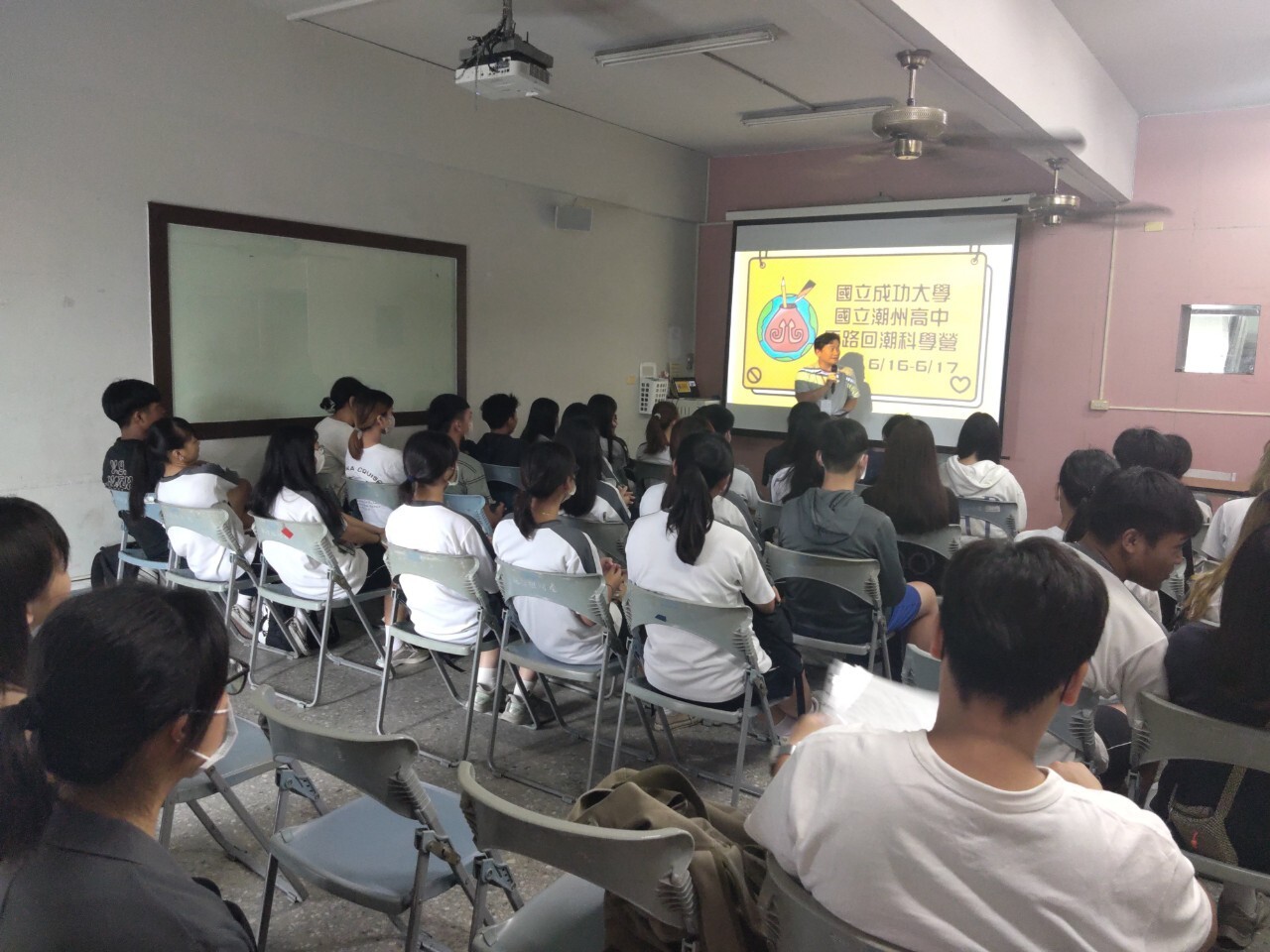
National Cheng Kung University and National Chaochou Senior High School collaborated to organize the "Return to Indigenous" High School Science Camp.
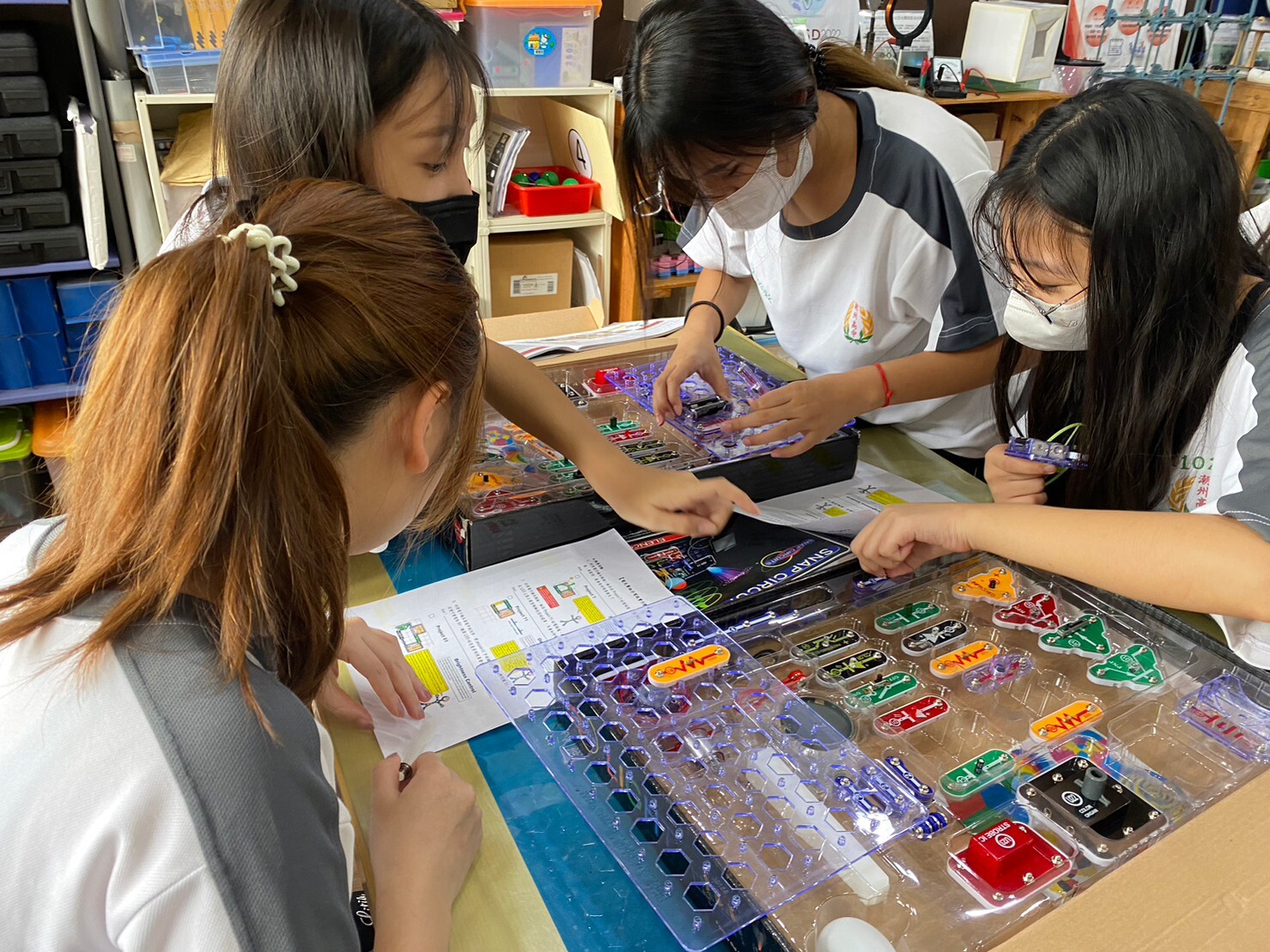
The "Electronic Building Blocks - Electronic Sound and Light Circuit Experiment" intrigued students and piqued their interest in scientific knowledge.
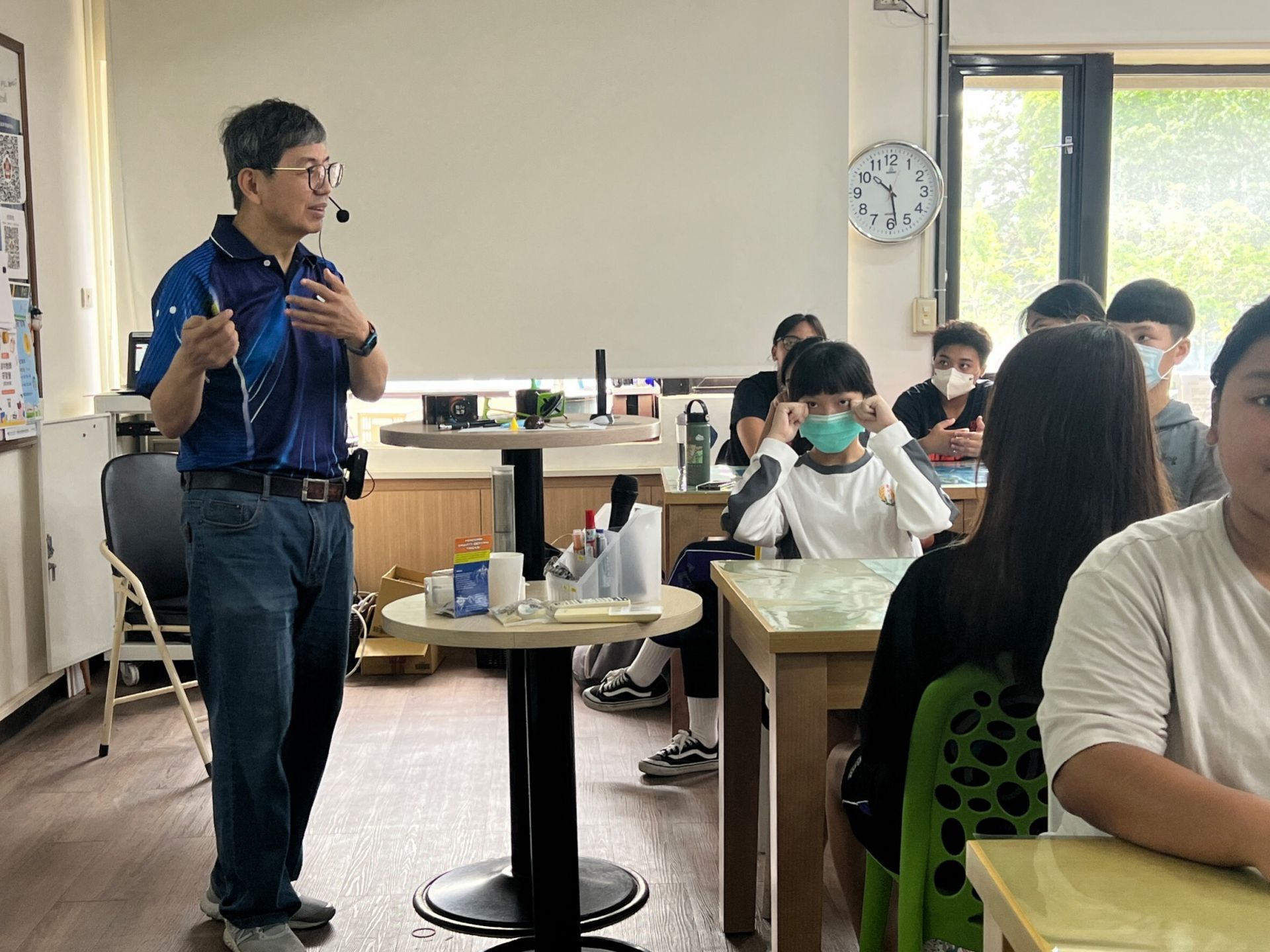
The Science Education Center of NCKU's College of Science explained the Paiwan Ball Stabbing Ceremony using mathematical and scientific principles.
